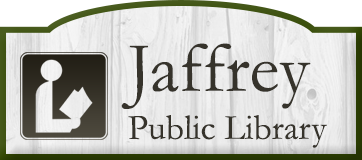Health & Wellness
The purpose of this page is to help you to find accurate and reliable sources of information to answer your health related questions and become a more knowledgeable health care consumer. These resources do not replace the expert advice of a qualified health care professional. Please consult with a health care provider when making health related decisions. If you are experiencing a health emergency, please call 911.
Misinformation spreads faster than illness. Before using any online sources of healthcare information, we encourage you to consider the source and quality of the information. Here’s a handy guide from MedlinePlus and the National Library of Medicine on Evaluating Health Resources.
RSV (Respiratory syncytial virus) Resources: Respiratory syncytial virus, or RSV, is a common respiratory virus. It usually causes mild, cold-like symptoms. But it can cause serious lung infections, especially in infants, older adults, and people with serious medical problems.
- MedlinePlus page on RSV – What is it, what are the symptoms and treatments
- Recognizing RSV - More Than the Common Cold from National Institute of Health (available in Spanish)
- RSV: When It’s More Than Just a Cold - Provides information recognizing symptoms, making your baby more comfortable and when to contact a medical professional. From Kidshealth.org Includes audio option, Spanish language version, and video.
- Guidelines on how to protect yourself and your loved ones from RSV infection from the Center for Disease Control and Prevention (CDC) (available in Spanish)
- Respiratory Syncytial Virus Infection (RSV) in Older Adults and Adults with Chronic Medical Conditions from the CDC (available in Spanish)
Covid-19 Resources:
- Covid-19 Vaccine
- Covid-19 Report for New Hampshire
- US MAP - Coronavirus COVID-19 United States by Johns Hopkins University/ Coronavirus Resource Center, data range 1/22/20 - 3/10/23
- WORLD MAP - Coronavirus COVID-19 Global Cases by Johns Hopkins University/ Coronavirus Resource Center, data range 1/22/20 - 3/10/23
- Coronavirus Disease page at the Center for Disease Control and Prevention (CDC).
- COVID-19 Pandemic page at the World Health Organization.
- Need some help talking with your kids about COVID-19? These resources can help: Just For Kids: A Comic Exploring The New Coronavirus and Talking with Children: Tips for Caregivers, Parents, and Teachers During Infectious Disease Outbreaks
Vaccines for Older Adults:
- View the recommendations of the National Institute on Aging. Please always consult your doctor before making vaccination decisions.
For additional health information, explore these reliable resources:
- MedlinePlus connects you to reliable, easy-to-understand health information on illness, symptoms, diagnosis, treatments, wellness and more. MedlinePlus is the National Institutes of Health's website for patients, their families and friends and is produced by the National Library of Medicine, the world’s largest medical library. For a MedlinePlus website video tutorial, click here.
- PubMed Central® (PMC) is a free full-text archive of biomedical and life sciences journal literature at the U.S. National Institutes of Health's National Library of Medicine (NIH/NLM). In keeping with NLM’s legislative mandate to collect and preserve the biomedical literature, PMC serves as a digital counterpart to NLM’s extensive print journal collection.
PMC was developed and is managed by NLM’s National Center for Biotechnology Information (NCBI).
Merck Manual was first published in 1899 as a small reference book for physicians and pharmacist. The Manual grew in size and scope to become one of the most widely used comprehensive medical resources for professionals and consumers. As the Manual evolved, it continually expanded the reach and depth of its offerings to reflect the mission of providing the best medical information of the day to a wide cross-section of users, including medical professionals and students, veterinarians and veterinary students, and consumers.
- Healthfinder.gov is a website developed by the U.S. Department of Health and Human Services, and is designed to help you find reliable information on health topics, health care providers, insurance and local services.
- Need information on alternative health approaches? The National Center for Complementary and Integrative Health (NCCIH) is the Federal Government’s lead agency for scientific research on the diverse medical and health care systems, practices, and products that are not generally considered part of conventional medicine. NCCIH was formerly known as the National Center for Complementary and Alternative Medicine.
- Traveling? Visit the Centers for Disease Control & Prevention Traveler’s Health page to learn about travel health notices, vaccines and related information before you travel.
- Need specific information for Children or Teens? Whether you need advice as a parent or easy-to-understand information on a health topic for your children, KidsHealth offers information on a variety of topics. The site also includes free videos on common lab tests and how the body works.
- Need medical information for your animal friends? Visit the Merck Veterinary Manual.
Need information on medications? While your health care provider and pharmacist are your best sources of information, the following guides may be helpful.
- MedlinePlus Medication Information - Basic medication information from the U.S. National Library of Medicine on drugs, herbs and supplements.
- FDA Medication Guides - An online version of the paper handouts from the U.S. Food and Drug Administration that accompany prescription medications, containing information about side effects, instructions for use, and more.
Poison Control Centers - In case of an emergency, call 911. The Poison Help Line at 1-800-222-1222 provides free, confidential medical advice 24 hours a day, 7 days a week.

